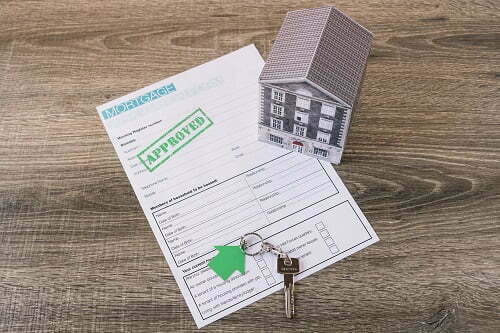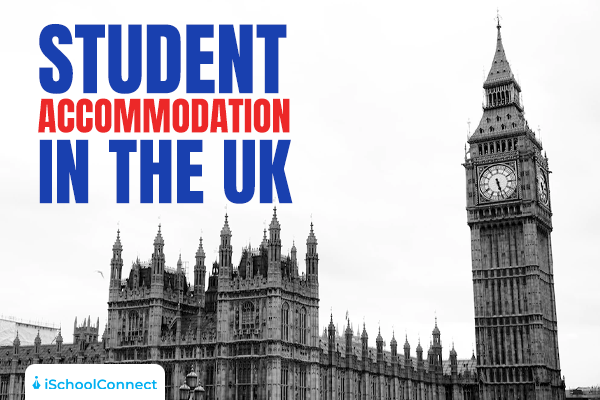Table of Contents
The UK is one of the most exclusive countries when it comes to studying abroad. Be it the famous black & red cabs of London, or the lovely waterfalls of Birmingham or those historic castles of Newcastle, the English land boasts a multitude of living environments for the international populace.
The UK houses more overseas students than any country in the world. However, while this brings an excellent opportunity to make international networks for you, the other side of the coin posts some drawbacks. One major factor that accounts is to find a perfect place to live as a student in the UK near a university.
Every year, we receive hundreds of emails regarding help to find a suitable place for living in the UK. Be it inside or off-campus student housing, every young mind seeks a great deal of competition due to a lack of adequate ground knowledge. That’s why this year we decided to introduce our delicate yet straightforward student-oriented blog, which will mention all pointers when it comes to booking accommodation in the UK.
What are the different types of student accommodation options available?
The UK is home to various student accommodation options that make it quite confusing for students while choosing the perfect one. That’s why it is vital to make sure you choose to keep all your requirements and budget in mind.
There are five primary types of student accommodation in the UK-
1. University-managed rooms

A university-managed room is the most common choice for foreign students in the UK. Known as the ‘Uni Rooms’, the university-managed rooms are simple dorm-like structures that bring suitable living conditions for their tenants. These are dormitory-style rooms managed by universities, often located on or near campus.
2. Studios
When it comes to living in the UK outside the university, studio rooms are the #1 choice for most students. Studio rooms are 1BHK or 2BHK student housings that offer unique rooms and better quality than university-managed rooms.
Private studio apartments typically offer better independence and space than university-managed rooms.
3. En-suite
En-suite accommodation is becoming more popular post-pandemic times. These rental properties offer separate bathrooms, kitchen and provide a better large bedroom for the young peers. En-suite rooms provide private bathrooms and are popular for their added privacy and comfort.
You can find many excellent student housing in London that offer en suite rooms and bring utmost privacy for the students, giving them far better productivity than many accommodation.
4. Sharing accommodation
Sharing accommodations are a stretched-out part of the university-managed rooms that are present nearby every UK university. These rooms are 2-bedroom or 3-bedroom accommodation that provides viable living perks for students such as shared rent, big halls, and law-based rental agreements that entitles the property ownership to the tenants for a fixed period. Shared apartments or houses where students can split rent and other expenses. Commonly used by students looking to reduce costs and enjoy social living.
Unlike other student housing in the UK, sharing accommodation allows sharing spaces and other amenities between a group ranging from 4-6 people, which readily reduces the burden of rent on each student and makes sure they enjoy their stay with maximum fun-loving company of similar-minded students.
5. PBSA
Purpose Built Student Accommodation, a.k.a PBSA’s, are becoming the latest trend amongst many international students. These private student halls come at affordable prices and are present in proximity to every major university.
Moreover, their best-in-class services and better quality of living are also responsible for their rising popularity in the United Kingdom. PBSA units are specifically designed for students, offering various amenities and often located close to universities.
Cost of off-campus student accommodation in the UK

Here are the top average spending structures that every UK student can expect to spend while living outside university-managed student housing.
- Rent for accommodation – #250-310
- Food and eatery shopping – #85
- Transport – #45
- Books and stationery – #30-40
- Internet/mobile phone – #28-35
- Leisure activities – #80-100.
Timing is crucial
Many students focus on UK student visas, immigration, and travel expenses but often overlook the importance of starting their search for accommodation early. Student housing can fill up well in advance, especially in popular areas near major universities. To avoid missing out, begin your search as early as possible. The rental market varies significantly between cities, and prices can rise due to demand and proximity to the university.
Ideally, start looking in January, right after Christmas, as this period offers numerous discounted deals and a broader selection of accommodation options for the September intake. Additionally, early planning helps you secure the best rates and preferred living arrangements, ensuring a smoother transition when you arrive in the UK.
Cost of renting off-campus properties
After being done with your hunt for off-campus accommodation, there are some basic expenses that you should know before booking them right away. These costs can differ depending upon the area.
So try keeping in mind to communicate with your landlord or the rental agency to prevent stepping on the wrong foot.
1. Fees
During your stay in student halls, you will be charged additional fees depending upon the amenities you have agreed upon. While these are only one-time, you should bear in mind their basic average prices and remember that they are negotiable and can be lowered for what you hear from your landlord.
- Getting references
- Credit checks
- Investigating immigration status
All of these titles may cost your wallet from #180-223 and vary as you book your student accommodation near London City Centre.
2. Deposits

Currently, two major deposit bills are to be dealt with when booking off-campus student accommodation in the UK.
The two types of deposits are –
- Tenancy deposit: It is the deposit that you submit to your landlord under a rental agreement. Such an agreement will ensure that you will abide by all the tenancy laws and are responsible for any accidents or damages to the properties included in the housing.
Tenancy deposit can cost up to:
-#563 in London
-#381 outside London - Holding deposit: Holding deposit, which is also known as the ‘First Month’ rent payment, marks the start of your stay in the property. Moreover, every landlord is entitled to take a holding deposit along with your signature over the rental agreement and a refundable fee of #100-500 as a token.
Note: It is illegal to take holding deposits or any fees for finding a property in Scotland. If asked for, students can immediately notify the local city council and can get things solved.
3. UK Guarantor
A UK Guarantor is a person who takes responsibility on your behalf when the tenant is unable to pay the rent on time. The role of a Guarantor is to make sure the tenant follows all rental agreement points without any delay. This levies off all their worries when students face rainy days and can expect a helping hand in need.
What next?
We’ve added all the vital points in our student guide on finding the perfect off-campus accommodation for students traveling to the UK.
We also advise you to set up average monthly expenses so that you can save a little each month and treat yourself better every time.
Now, all that remains is packing your back, getting your documents set, and leaving for your dream country.
FAQs
1. What are the main types of off-campus student housing in the UK?
Answer- The main types are university-managed rooms, private studios, en-suite rooms, shared accommodations, and Purpose Built Student Accommodation (PBSA).
2. How much does off-campus student accommodation cost in the UK?
Answer- Expect to pay £250-£310 per week for rent. Additional weekly costs include £85 for food, £45 for transport, £30-£40 for books and stationery, £28-£35 for internet/phone, and £80-£100 for leisure.
3. When should I start looking for off-campus student housing in the UK?
Answer- Begin your search in January, after Christmas, to find the best deals and secure accommodation before the busy September intake.
4. What should I know about deposits and fees for off-campus student housing?
Answer- You’ll need to pay a tenancy deposit (up to £563 in London or £381 outside London) and a holding deposit (£100-£500). Fees for references, credit checks, and other services can range from £180-£223. In Scotland, holding deposits are illegal.






